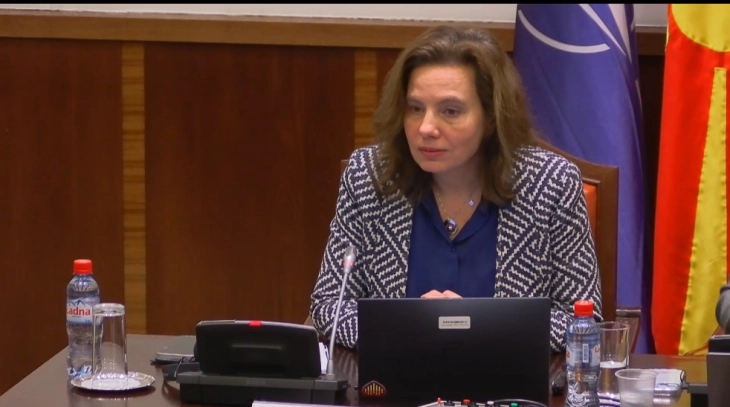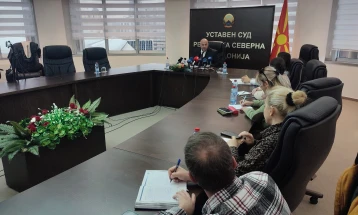World Bank: Create predictable business climate, make sure regulators are independent
- The World Bank's key recommendation for the state to help develop the private sector, presented Thursday at an event organized by the Committee on Economic Affairs in Parliament, is to create a predictable business climate and save companies time and money by reducing administrative costs and relaxing bureaucratic demands.

Skopje, 19 December 2024 (MIA) — The World Bank's key recommendation for the state to help develop the private sector, presented Thursday at an event organized by the Committee on Economic Affairs in Parliament, is to create a predictable business climate and save companies time and money by reducing administrative costs and relaxing bureaucratic demands.
At the event attended by representatives of government ministries and competent institutions, the non-governmental sector, chambers of commerce and the Organization of Employers of Macedonia, World Bank representatives presented many recommendations on how to improve the country's business climate.
However, meeting them all, according to the WB, would require independent financial sector regulators — such as the Development Bank, the Commission for Protecting Competition — regulating or deregulating the market by making the right decisions, they said.
Tatjana Markoska, private sector specialist at the World Bank, said the country needed to diversify its exports by stimulating more companies to export more products and services to more markets.
"In Macedonia, exports are one of the main drivers of development, but they are very concentrated in one market, the German one," Markoska said.
She added that companies were mainly focused "on the automotive industry and on a relatively small number of large companies," which she said carried "a very high concentration of risk."
"What is happening now with the German economy has a major negative impact on our economy," Markoska said.
She also said the state needed a new strategy for attracting foreign investments.
The old strategy was based on cheap labor and was no longer applicable, she said, adding that it would be better to focus on attracting investors in the high-tech industry that brought greater value and required highly skilled personnel.
To boost exports, Markoska also recommended the state digitize Customs Administration procedures and improve border crossing infrastructure.
"It is important to increase the number of exporters — given that less than four percent of Macedonian companies export at the moment — and to this aim, there should be state programs supporting exports and supporting the readiness of companies to enter foreign markets," Markoska said.

Valeria Perotti, manager of the World Bank's Business Ready unit, presented the findings of the WB's B-READY report, which maps areas that could be improved.
According to the report, "North Macedonia scores highest in Business Entry, Utility Services, and Financial Services. Within these areas, the economy provides unique business identification, transparent information (connection requirements, tariffs, complaint mechanisms) for electricity and enhanced and simplified Customer Due Diligence processes based on client risk."
"North Macedonia scores lowest in Taxation, Business Location, and Business Insolvency. Within these areas, the economy does not implement key good practices for clarity of tax regulations, it lacks an electronic system to submit building permits applications, and no digital services are provided for liquidation and reorganization proceedings," the B-READY report says.
"It is interesting that existing companies can be persistent and resilient," Perotti said. "This means they will find a way to keep working even when there are challenges in the regulatory framework or in public services."
However, she added, if the regulatory framework and services were improved, the Macedonian economy could attract new companies and help the existing companies grow and develop better.
Speaking about the time it took someone to register a new company, Perotti said it was "good" that it took "12 days, but it could be faster – three days." She also noted "it takes 180 days to obtain a building permit, whereas in the best economies it takes 14 days."
To resolve a dispute, according to Perotti, here it takes eight months. "In the best economies," she said, "it takes one month." mr/











